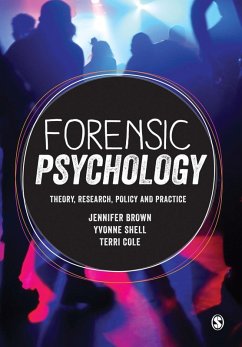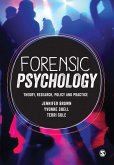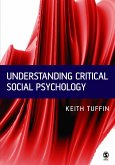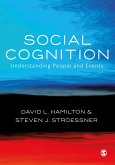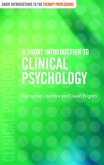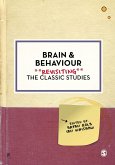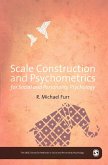Winner of the British Psychological Society Book Award 2018 - Textbook category
'This fascinating book examines some of the ideological underpinnings of forensic psychological research, policy and practice. It is refreshingly reflective and a significant contribution to the field. I strongly recommend it.'
- Professor Graham Towl, Durham University and formerly Chief Psychologist at the Ministry of Justice
'The strength of this book is the complexity of concepts and topics covered mean that it is suitable for students who wish to be challenged.'
- Dr Louise Almond, University of Liverpool
'This is a book for people who like to think. It presents the realities of practice with the challenges of theory and asks the reader to shake off complacency. It is insightful and challenging but most of all, it is very readable.'
- Professor Joanna R. Adler, Middlesex University
Students of Forensic Psychology need to learn how to combine practical skills such as report writing or assessments with a critical understanding of both theory and the wider political and policy landscape that surrounds the profession.
Mapped to the British Psychological Society's Stage One and Two training requirements for forensic psychologists Forensic Psychology: Theory, Research, Policy and Practice will help you understand how these crucial areas of the profession interact and how they can shape one another. Throughout the text the authors provide a detailed analysis of key concepts, debates and theories while weaving in insights and reflections from key professionals, ensuring you have the necessary knowledge and skills to pass assignments and get past the stage 2 supervised practice requirements en route to becoming a qualified forensic psychologist.
This text will be essential reading for all those on MSc Forensic Psychology courses, and will also be a useful reader for those on practitioner doctorates as well as the already qualified needing to keep up with the CPD. The book is also a useful companion to professionals in allied criminal justice professions.
Dieser Download kann aus rechtlichen Gründen nur mit Rechnungsadresse in A, D ausgeliefert werden.
What separates this book from numerous others in the field of forensic psychology is its refreshingly realistic, honest and systemic examination of the role of forensic psychologists in the criminal justice system. The authors balance a warts and all account of the difficult aspects of the role with an encouraging focus on how forensic psychologists can work effectively, even within difficult political climates. An essential text for those considering venturing into the world of forensic psychology work. Likewise, it is a worthwhile text for more experienced practitioners, of all forensic disciplines. Hannah Darrell-Berry, Clinical Psychologist

